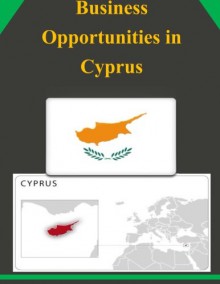The Republic of Cyprus is the easternmost country of the European Union and is strategically located at the crossroads of three continents – Europe, Asia, and Africa. A European Union member since May 2004 and a member of the Euro-Zone since January 2008, Cyprus is seeking to capitalize on its...
show more
The Republic of Cyprus is the easternmost country of the European Union and is strategically located at the crossroads of three continents – Europe, Asia, and Africa. A European Union member since May 2004 and a member of the Euro-Zone since January 2008, Cyprus is seeking to capitalize on its geographic position by expanding its business relations and flight connections with the Middle East. A liberal investment regime and network of 49 double tax avoidance treaties makes Cyprus an attractive location from which to base international and regional operations. In 2012, the net inflow of FDI reached €979 million, while the net outflow from Cyprus was €219 million. In 2013, Cyprus imported goods worth €52.4 million from the United States and exported to the United States goods worth €57.7 million. As an island economy Cyprus imports all of its €6.4 billion worth of consumer goods, equipment, machinery, and petrochemicals. Cyprus’ major exports are pharmaceutical products (€200.9 million in 2013), halloumi cheese (€76.4 million) and potatoes (€53.8 million). In March 2013, the financial crisis led the Republic of Cyprus to seek bailout assistance from the Troika (European Commission, European Central Bank, and IMF). The Cypriot economy contracted by 5.4% in 2013 and is expected to contract by another 4.2% in 2014 before returning to mild growth in 2015. As part of the bailout package, Cyprus agreed to far-reaching reforms that included reducing government spending, privatizing several state-owned entities, and restructuring and consolidating the financial services sector, which remains temporarily constrained by capital controls on international transactions. As of mid-2014, the Cypriot economy had successfully completed four Troika reviews. Despite the downsizing of its financial sector, Cyprus continues to offer high-quality accounting, legal, and other professional services; these services are one of the strong points of the economy. The labor force of 356,600 is largely multilingual and college educated. As compared with the EU average, labor costs in Cyprus are relatively low. Cyprus has an advanced telecommunications network and infrastructure, relies on British common law for its legal system, maintains a wide network of air-routes offering excellent connections with Europe, Africa, and Asia, and has first-rate sea connectivity. This environment provides both challenges and opportunities for forward-looking foreign investors.
show less

